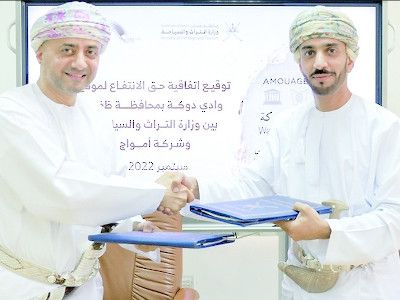Frankincense resin could slow Covid impact
Plants from the past and used in the Bible may help us against modern ailments. Research studies to produce medicines capable of fighting COVID-19 from frankincense trees in Oman are being jointly undertaken by the University of Nizwa in Oman and the University of Oxford in England.
Research studies to produce medicines capable of fighting COVID-19 from frankincense trees in Oman are being jointly undertaken by the University of Nizwa and the University of Oxford.
The project is looking to isolate certain key compounds from frankincense – known for its healing properties – and to use them to make antibiotics.
The resin contains large numbers of naturally occurring chemicals that could be used to inhibit the ability of the COVID-19 virus to infect people, local daily, The Times of Oman reported.
“We realised that the properties of these compounds being anti-inflammatory can be very beneficial, because we could use these to inhibit the m-protease protein in the COVID virus,” Dr Ahmed Sulaiman Al Harrasi, the Vice Chancellor for Research and Graduate Studies at the University of Nizwa, said, quoted by the daily.
“This protein is present in the spike protein of the virus, which is used to enter the host cells, such as the lungs, in the case of humans. We ran models of the m-protease, in which we treated this with our active drugs,” he added. “We could see a very strong binding between the two, which means the inhibition of the virus by these compounds could be very strong.”
The project is led by Dr Al Harrasi, who also serves as the Chair of the Natural and Medical Sciences Research Centre, which he helped found, and is conducting this research, and Dr Christopher Schofield, the Head of Organic Chemistry at Oxford.
“It starts with the isolation of active ingredients from the frankincense resin,”Al Harrasi said.
“It then has to go through several procedures conducted here. Some of these are self-developed methodologies and protocols that helped us isolate these bioactive components, purify them, and then characterise them. We came to know their structure through different spectroscopic techniques such as nuclear resonance, X-rays and mass spectrometry. Various techniques are used to identify and elucidate the structure of those components used to make drugs isolated from frankincense.”
The resin was chosen for this research as it contains a high number of boswellic acids, known to be excellent anti-inflammatory components, which have been used to treat ailments such as diabetes, cancer, joint pain and Crohn’s disease.
“Some of these are about to reach pharmacy shelves as real drugs." The next step of the research will involve testing the quality and strength of the compounds isolated from frankincense
“There are other plants that contain various alkaloids – some of these are very similar to chloroquine, one of the drugs used to treat COVID-19,” he said.
“At some stage, this drug was withdrawn and then brought back. The advantages of the alkaloids we have isolated is that they are naturally occurring, their structures are fascinating, and they are very promising. We are testing them with our colleagues at Oxford,” he went on to say. “One of these potential plants is haplophyllum tuberculatum, a very well-known plant for traditional medicine in Oman. We have a bank of more than 1,000 compounds – some of them are isolated from different plants of Oman, while others are synthetically modified by us."
Al Harrasi said they have studied more than 70 medicinal plants of Oman. The NMSRC is also working on various other activities – marine species, microorganisms, bacteria, fungi, biomedical research, anti-venoms, anti-diabetes and anti-cancer research. We have finished phase one here, and now we are in phase two. Phase three remains.
“If things go well, maybe in a year’s time, we will execute the project with regard to the 20 active components regarding COVID-19 and the m-protease enzyme,” he said.
“We have 12 research labs, and we have managed to establish a large network of active collaborators, and have large numbers of specialised equipment. Collaboration for research projects such as this one has been established with different stakeholders including the Ministry of Agriculture, Fisheries and Water Resources, Ministry of Health, Oman Botanic Garden, the Office for the Conversation of Environment, Sultan Qaboos University, Ministry of Higher Education, Research and Innovation, and several others." Internationally, the university is collaborating with more than 50 institutes around the world.
Leave a comment
Breaking news

Harvest jebel akhdar roses in oman

Frankincense and breast cancer

